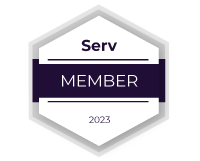Introduction to Client Accounting Services (CAS)

In the post-pandemic world, as companies continue to grow their revenue, one of the biggest challenges is growing their back-office accounting and administrative functions to keep up with the increasingly challenging requirements of lenders and sophisticated investors.
Those companies are already considering the advantages of outsourcing accounting and fund administration functions to client accounting services (CAS) providers. Based on a recent Accounting Today Top 100 Firms article, CAS was one of the top ten fastest-growing service niches.
CAS Vs. Traditional Bookkeeping
Services offered by CPA firms are different from bookkeeping services. While CPAs are expanding into CAS, many such firms do not offer management reporting services.
Historically, CPA firms have provided bookkeeping services, but only as an ‘After the Fact (ATF)’ service. To put it another way, bookkeeping that’s done at the end of the month or quarter to ensure that the books are correct for the tax return or the bank.
A bookkeeper generally lacks the skills required to provide management accounting reports and key performance indicators — the information that clients need to expand their business – due to a lack of training.
CPA Firm Model & The Industry Overview
Furthermore, the typical CPA firm model, which consists of a CPA/partner and a bookkeeper, lacks the business information and quality control assessments provided by accounting managers or senior accountants. Due to a present dearth of skilled middle-level workers in the accounting profession, those roles are difficult to fill.
The global company accounting software market is expected to expand to USD 1.64 billion by 2024, according to Market Reports World.
Accounting activities are accelerated, and accountants are encouraged to handle financial transactions online, saving time and money, with next-generation CAS solutions such as QuickBooks, Sage Business Cloud Accounting, MS Dynamics 365, and XERO Accounting. These modernized tools improve financial analyses and speed up the process to prepare statements and reports, which previously required months.
Advantages of Advanced Accounting Software

- Cloud Computing:
According to a survey, enterprises that use cloud-based accounting see an increase in revenue of more than 14% year over year. - Data Analytics:
By 2022, global revenues from Big Data and Business Analytics (BDA) products will hit $260 billion. Big Data plays a major role in the accounting industry. It aids experts in locating relevant data and doing secure and thorough data analysis with enhanced assessment methods for actionable insights.
- Data Security:
As accounting software processes a huge amount of financial data daily, businesses face huge data security risks. With the arrival of cloud computing, the severity of such a danger has increased.
- Automation:
According to an ACCA survey, more than half of C-level accounting executives anticipate the emergence of automated accounting systems. Not only accounting but all other businesses around the world have been transformed by automation.
- Artificial Intelligence (AI) and Machine Learning (ML):
Artificial intelligence (AI) and machine learning (ML) provide accountants with the opportunity to have accounting software systems imitate individuals and make judgments on their own.
Is your business looking forward to migrating from a traditional accounting system to modern accounting software? SPC NXT has the vision to bring consistency & accuracy in accounting, keeping pace with changes in tax laws, managing high volumes of heterogeneous data, and generating GST compliant reports. Reach out to us now or visit us on our website.
Data Visualization and Business Intelligence in Client Accounting Services (CAS)

In 2022, global revenues for Big Data and Business Analytics (BDA) solutions are expected to reach $260 billion.
Big data is a key player in the accounting industry. In the accounting industry, big data plays a major role. It enables companies to implement required controls, foresee risks, and respond to them before they occur. CPA businesses should choose from a variety of business intelligence and data visualisation technologies to deliver higher-level financial information to their clients, with Tableau and Microsoft Power BI being the two most popular in the accounting field. Adaptive Discovery, Google Charts, Qlik, Wolters Kluwer’s TeamMate Analytics, and Zoho Analytics are some other names to remember.
In financial operations, Power BI and Tableau dashboards allow you to monitor and measure each of your client’s financial KPIs or indicators. What is the benefit of this?
Advantages Of Power BI & Tableau Dashboards For CAS
- Implement better cost and cash management strategies.
- Track your business expenses and sales revenue.
- Provide a daily overview of the cash flow in your business and your liquidity status.
- Track the status of your account payables and account receivables to complete all the outstanding payments (due from your clients) and owed payments (to your business vendors and partners).
- Achieve the financial goals of your company.
Core Data Analytics Reports for CAS
Here are the four most important Power BI reports for Professional Services Organizations to focus on to get the best return on investment.
- Billable allocation report in Power BI provides an overview of all resources (employees) at work and determines how many days and hours they are billable (occupied). The table demonstrates the billable allocation report for future weeks. The colour demarcations help determine the percentage of allocations and in defining your criteria.
- Accounts Receivable (AR) Report: An accounts receivable report is a document that lists the outstanding invoice balances as well as the duration. This report assists businesses in identifying open bills and allowing them to stay on top of customer payments. You can use accounts receivable reports in Power BI to track and analyse information about your AR invoices.
- Project Overview report: As a CPA business, you’d be expected to provide accurate and timely services to your clients and Power BI can help you improve your results in an even better manner. The Project Overview Report provides a high-level overview of all active projects, as well as revenue estimates, forecasts, and invoices.
- Project Cashflow Report: You can use Power BI to build a Project Cashflow report in a matter of seconds and keep track of your company’s financial health. The monthly forecast bills can be given immediately.
SPC NXT has been globally successful in offering bespoke dashboard solutions to a variety of clients thanks to its technological experience in intelligent dashboards, data analytics, and visualization. If you or your clients are looking for optimal ways to leverage your business investment, reach out to us now or visit us on our website.

Factors Businesses Must Consider Before finalizing Client Accounting Services (CAS) Vendors

Accounting assists in the management of daily invoicing, the tracking of sales activity, the generation of audit reports, and many other tasks. The old technique of managing these activities is complicated, time-consuming, and prone to errors. As a result, companies are adopting sophisticated accounting systems.
Smart innovations are rapidly developing, bringing the estimated market value of accounting software to USD 19.59 billion by 2025.
Modern accounting software comes with a slew of benefits. From managing billing to generating financial reports to managing compliances from the common backend, the businesses get 360-degree visibility of their financial health, empowering them to make more informed business decisions.
Advantages of Advanced Accounting Software
- Easy bank reconciliation: The integration of bank accounts ensures that the company is audit-ready. It also simplifies the reconciliation process by automatically integrating and matching financial transactions.
- Efficient Tracking of expense: Accounting software scans receipts and records the information, reducing paper clutter.
- Hassle-free billing: For recurrent orders, automated software makes billing simple. Payment gateways also notify clients of pending payments, generate transaction records, and update them in the system under the appropriate invoices.
- Efficient audit trail: The software makes it easy to maintain financial documents and eliminates the need for physical storage. This promotes a clean audit trail.
- Efficient tax management: It makes it easier to comply with different tax rates and laws by speeding up calculations and generating tax summary reports.
- Improved inventory management: It keeps companies up to date on their inventory and stocks, transaction flow, product details, and automatic communications.
While there is a lot of accounting software on the market, businesses frequently have a hard time deciding which one is ideal for them. Here are five factors to consider while making a choice.

Things to Keep in Mind Before Investing in Accounting Software:
Obtaining a financial management tool is a significant financial expenditure. Many businesses, on the other hand, make hasty judgments without considering their long-term financial objectives, and as a result, they lose money.
The best method is to conduct detailed research on regular financial activities and identify business needs. Before making a final decision, firms must consider the following criteria.
Contemplate the Business Needs: The first step should be to determine why accounting software is being used. Ask yourself these questions:
- Is it required for automating the tax filing process? or keeping track of sales activity? or perhaps both?
- Do the accounting operations demand on-premises desktop-based software or cloud-based application?
Safeguard the Business Data: The FBI recently reported that cyberattack complaints had increased to about 4,000 per day, a 400% increase from pre-coronavirus values. Consider the following:
- Is the business data hosted on the vendor’s server or other trusted hosting service provider?
- Is the vendor using an HTTPS connection?
Intuitive User Interface: For everyday operations, the software’s comprehensive mechanism must provide a simpler and more convenient user interface. It should not be overloaded with needless features, allowing professionals to concentrate on their top priorities.
Meeting Compliance Requirements: Businesses have made certain that their financial records are compliant with the law. For instance- firms must report invoices in the standard format with e-invoicing. It enables tax authorities to view the complete audit trail of invoices filed by taxpayers using the GST system.
Support Services: There are two types of software in the market-cheap and expensive. But the customer support service is the main differentiator. IT support is required regardless of how safe, feature-rich, or user-friendly the product is.
With its significant features and benefits, modern accounting software promotes brand visibility, improves customer experience, and facilitates business growth. Choosing the correct accounting software, on the other hand, is a challenging feat.
SPC NXT enables enterprises to perform all necessary financial processes, including automatic journal entries to comply with GST issues, product payment in many currencies, automatic creation of e-invoicing, and e-way bills, among others. Please contact us or visit our website for further information.




